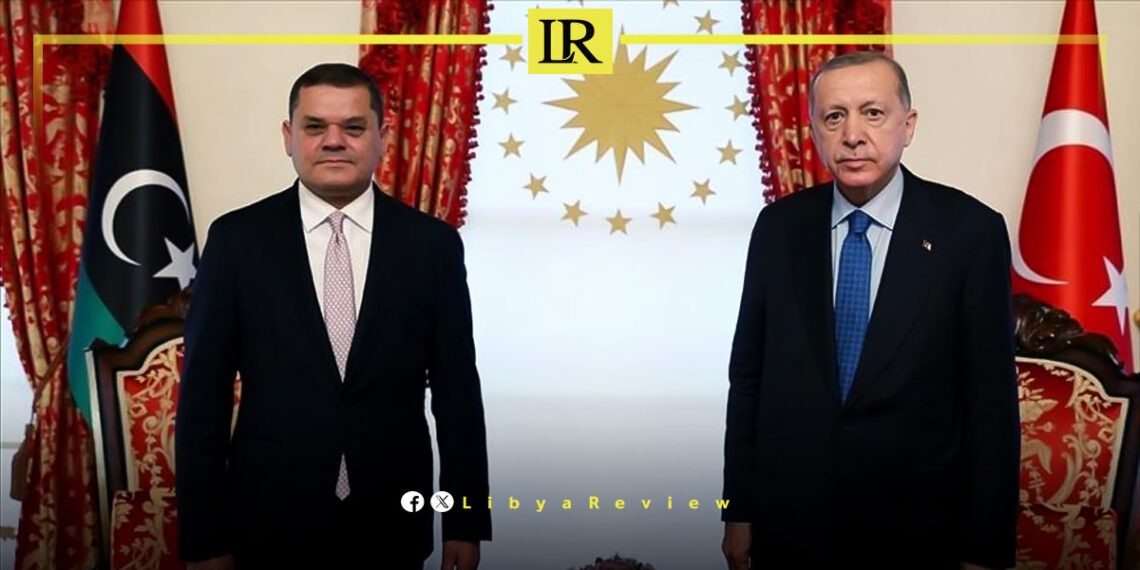Turkey is taking advantage of Libya’s ongoing turmoil to strengthen its position across the southern Mediterranean, according to a new report published by the Italian Institute for International Relations (IAI).
The report describes how Ankara has steadily increased its presence in Libya, using the lack of political unity and security in the country to advance its long-term regional plans.
Over the past few years, Turkish influence in Libya has grown through military, political, and economic channels. This approach reflects earlier strategic thinking from former Turkish Foreign Minister Ahmet Davutoğlu, who placed Libya at the center of Turkey’s regional ambitions.
According to the IAI, the Libyan conflict has provided the Turkish government with an opening to reinforce its role in North Africa and secure its access to energy and maritime assets in the Mediterranean.
The recent outbreak of violence in Tripoli, following the death of militia leader Abdulghani al-Kikli, gave Prime Minister Abdul Hamid Dbaiba stronger control over the capital. Several armed groups connected to the Ministry of Defense, including Brigade 444, Brigade 111, and the Joint Operations Force, tightened their grip. Many of these groups maintain strong links with Ankara. The report suggests that the removal of al-Kikli may have created a more favorable environment for Dbaiba and, by extension, for Turkey.
At the same time, Turkey has adjusted its approach across Libya. While maintaining close ties with the government in Tripoli, Ankara has also opened channels in the east. Turkish representatives have visited Benghazi, and Ankara has invested in infrastructure and construction projects in areas controlled by the rival administration.
The report also connects this strategy shift to the recent thaw in Turkish-Egyptian relations. Since the September 2024 meeting between Turkish President Recep Tayyip Erdoğan and President Abdel Fattah el-Sisi, both sides have spoken of working together to calm tensions in Libya and support a unified government.
However, Turkey’s ongoing military cooperation with Dbaiba, particularly through a defense agreement granting Turkish forces access to Libyan airspace, ports, and territory, has raised concerns in Cairo.
The IAI warns that other powers, especially Egypt and Russia, may push back against Turkey’s moves. Both countries remain active in eastern Libya and continue to support their allies there. Russia retains a strong military presence despite the war in Ukraine, and Egypt is still seeking to protect its influence, even after resuming talks with Ankara.
The report concludes that Libya is becoming a battleground not just for local rivals, but for broader competition involving Turkey, Russia, Egypt, and the European Union, especially over migration, oil, and control of key maritime routes.


